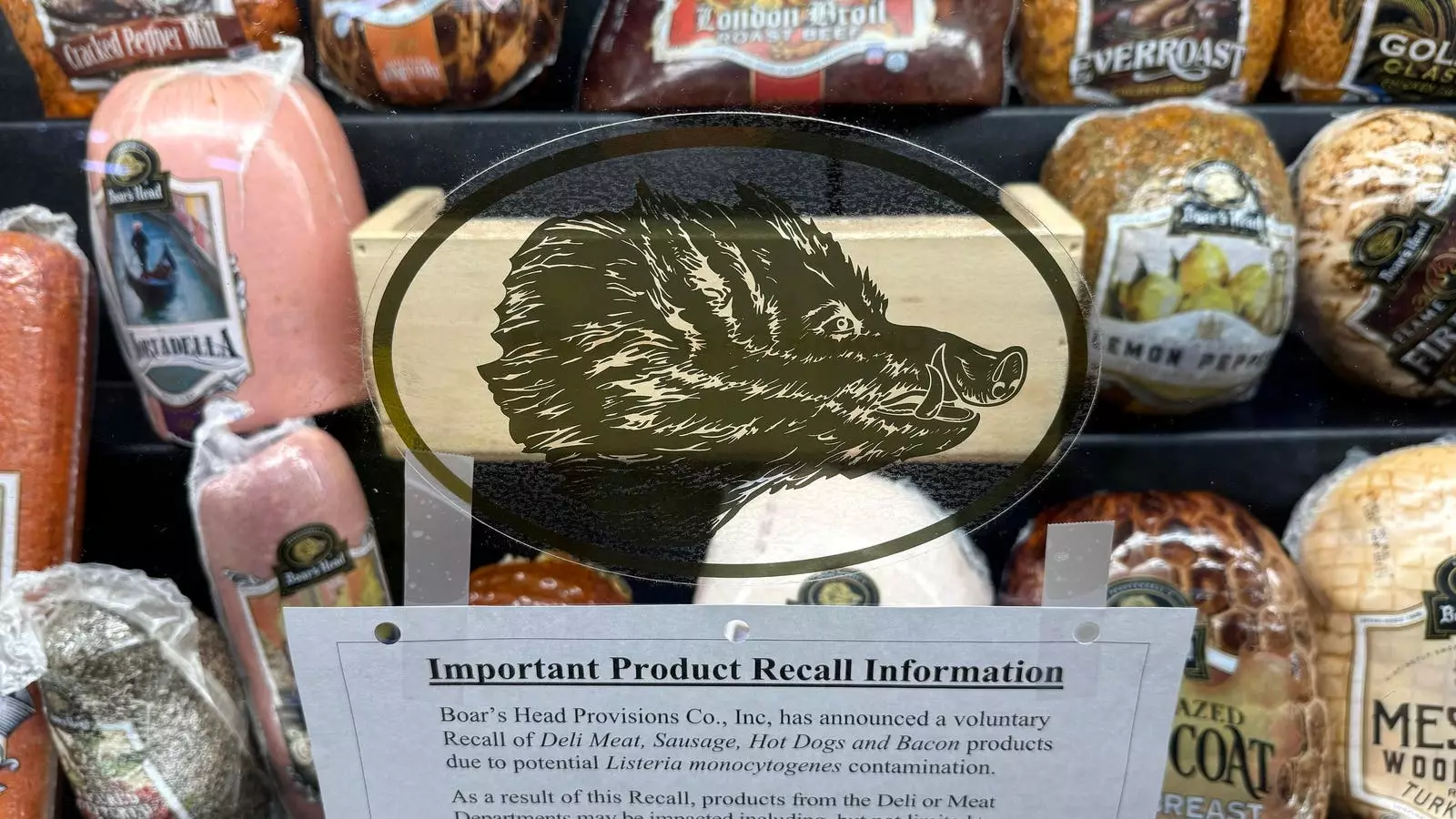As Climate Week unfolds in the vibrant streets of New York City, it serves as a backdrop for an enlightening discourse on sustainability and innovation. Yet, amid the buzz, an unsettling narrative surrounding one of America’s largest deli meat brands, Boar’s Head, has emerged, casting a shadow over the festivities and focusing attention on a crisis of significant proportions. This story involves not only a troubling listeria outbreak that has led to grave health consequences but also hints at deeply rooted family feuds that threaten to dismantle the empire built over a century.
The darker side of the agri-food sector often lurks beneath the surface, and Boar’s Head epitomizes the complexities of a billion-dollar brand grappling with both internal conflict and external scrutiny. The juxtaposition of an esteemed heritage against a backdrop of deadly consequences and corporate strife is nothing short of dramatic. As the dust continues to settle, stakeholders must navigate a labyrinth of legalities and public perception that could redefine the company’s legacy.
At the heart of the unfolding drama lies a tragic listeria outbreak that has claimed lives and sickened dozens across multiple states. Initial reports indicate that ten fatalities and nearly sixty hospitalizations can be traced back to a single manufacturing plant operated by Boar’s Head. The immediate aftermath of such a crisis is often a call for swift action; however, in this instance, it has evolved into a web of lawsuits and calls for congressional hearings that will no doubt keep the spotlight on the company for the foreseeable future.
Such crises often reveal more than just the operational mishaps of a corporation; they unveil the vulnerabilities embedded within their structures. Boar’s Head’s secretive nature complicates matters further, with a reluctance to communicate transparently during times of crisis—a tactic that can breed distrust among consumers and regulators alike. As documentation of the outbreak unfolds, the company’s response, or lack thereof, may play a crucial role in its future. A failure to acknowledge the depth of the crisis may deepen the wounds inflicted upon its reputation.
Compounding the public health scare is an equally distressing revelation of dissension among the founding families of Boar’s Head. Instead of uniting to confront the external threats posed to their business, these factions seem embroiled in legal battles that may appear trivial against the backdrop of a much larger crisis. Such infighting within the company not only distracts from the urgent need for a collective response but also raises critical questions around leadership and governance.
Family-owned businesses often ride the fine line between familial loyalty and professional obligation. When personal conflicts overshadow corporate strategy, the consequences can be severe. In Boar’s Head’s case, the internal squabbling could potentially undermine investor confidence and consumer trust, adding another layer of complexity to an already fragile situation.
For Boar’s Head, the coming months will undoubtedly be a test of resilience and accountability. The company stands at a crossroads, where the choices made will determine its path forward. Will it embrace transparency and accountability to regain public trust, or will it attempt to weather the storm with minimal acknowledgment of the underlying issues at play? The answers to these questions will not only impact the company’s financial performance but will resonate across the agri-food landscape.
As investigators delve deeper into the reported issues, the additional oversight from the Department of Justice may lead to criminal charges, although the implications of such outcomes may reach beyond legal penalties. Consumers are increasingly vigilant regarding the companies they support, and any sign of negligence could inspire a marketplace shift.
While Climate Week fosters discussions about sustainability and innovation, the Boar’s Head saga serves as a stark reminder of the challenges that lie ahead for corporations operating in an intricate and often precarious landscape. The interplay between public health, corporate governance, and family dynamics poses both risks and opportunities for those at the helm. As external pressures mount, only time will reveal how Boar’s Head will navigate its substantial perils and whether it can reclaim its status not only as a leader in its industry but as a responsible corporate citizen. While restoration may be arduous, the journey toward rebuilding trust and accountability has never been more essential.

